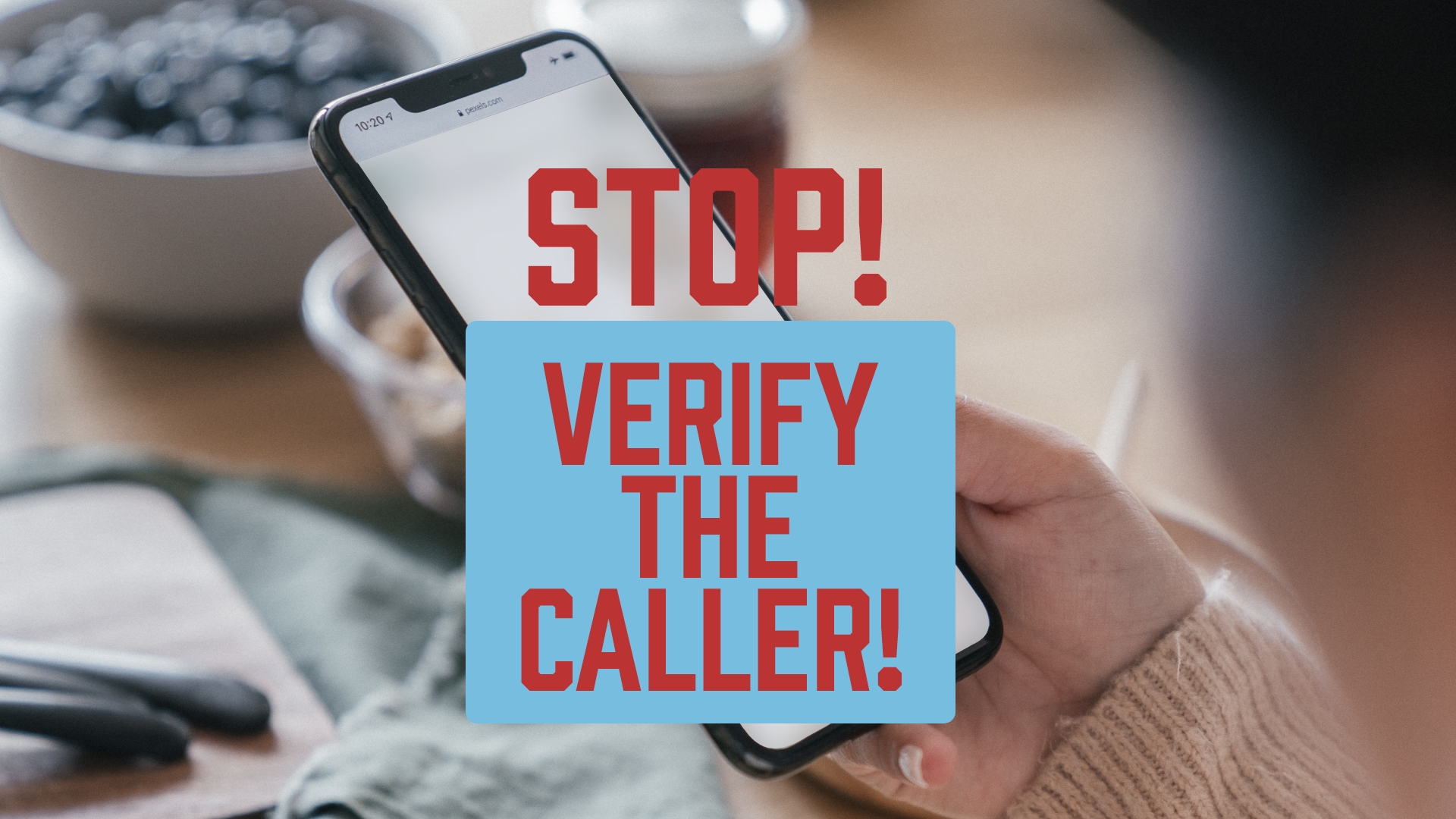
What is Phone Fraud?
Phone scams are fraudulent attempts to trick members into giving away personal information or money over the phone. Scammers may impersonate financial institution representatives, government agencies, bill collectors, charitable organizations and more.
What are some examples of phone scams?
Some common examples of phone scams include:
- Phishing calls: scammers attempt to get personal information such as credit card or Social Security numbers.
- Vishing calls: the use of automated voice messages to attempt to get a payment made and allow the scammer to obtain the financial information.
- “IRS scam”: scammers impersonate IRS officials and claim that the member on the phone owes taxes that must be paid immediately, often through a prepaid debit card or wire transfer.
- “Tech support scam”: scammers impersonate technical support staff and claim that the members computer is infected with a virus and needs to be fixed immediately. They may then ask for remote access to the members computer or for payment for a supposed “fix.”
- “Grandparent scam”: scammers impersonate a grandchild in distress and ask the member on the phone to send money immediately and not to tell anyone.
- “Fake charity scam”: scammers impersonate charity organizations and ask for donations.
- “Pension scam”: scammers target members nearing retirement and offer to help them invest their pension or savings into high-return but high-risk scheme.
It is important to be vigilant and not to give out personal information or money to unsolicited callers, and always be suspicious of unsolicited calls or emails.
What You can do to prevent from being a victim of a phone scam?
Here are some steps you can take to protect yourself from phone scams:
- DO NOT give out personal information over the phone, such as your Social Security number, credit card number, or bank account information.
- Inform us if you have provided any financial information over the phone or have transferred money to a suspect account.
- Be skeptical of unsolicited phone calls or texts, especially if they ask for personal information or money. Legitimate organizations will not typically ask for sensitive information over the phone or by text message.
- Do not make payments or provide account information over the phone, unless you initiated the call and are certain of the identity of the person or organization you are dealing with.
- Do not provide remote access to your computer to anyone who contacts you unsolicited.
- Be suspicious of callers who insist on urgency, use high-pressure tactics, or are unwilling to provide more information about themselves or their organization.
- Be wary of callers who claim to be from government agencies, especially if they are asking for money or personal information. Remember that most government agencies will not contact you over the phone and ask for payment.
- Do not trust caller ID. Scammers can use technology to make it appear as if they are calling from a legitimate organization or government agency.
What does Charter Oak do to prevent phone scams?
Charter Oak takes a number of steps to prevent phone scams and protect their members. Some of these include:
- Authenticating customers: we use a variety of methods to authenticate customers over the phone, such as asking for personal information or security questions.
- Educating members: we work to provide educational materials and training to members to help them recognize and avoid phone scams.
- Providing member support: we have a dedicated customer support team that handles calls and emails from members who suspect they may have been the victim of a phone scam.
- Working with law enforcement agencies: we often work closely with law enforcement agencies to investigate phone scams and bring scammers to justice.
It is important to note that despite these efforts, scammers are always finding new ways to trick individuals, so it is important for customers to be vigilant and to follow the recommended steps to prevent phone scams.
What should I do if I am suspicious of a phone scam?
If you are suspicious that a phone call or text message may be a scam, here are some steps you can take:
- Hang up the phone. Do not engage with the caller or respond to any requests for personal information or money.
- Inform us if you have provided any financial information over the phone or have transferred money to a suspect account.
- Do not call back the number, scammers might use this to confirm that the number is active and to target you more.
- Research the phone number or organization online. Search for the phone number and organization name along with the words “scam” or “fraud” to see if other people have reported similar incidents.
- Report the suspicious call to the appropriate authorities.
- Educate yourself and your loved ones about phone scams, their tactics and how to avoid them.
It’s important to remember that scammers can be very convincing and use sophisticated tactics, so it’s always better to be safe than sorry.


